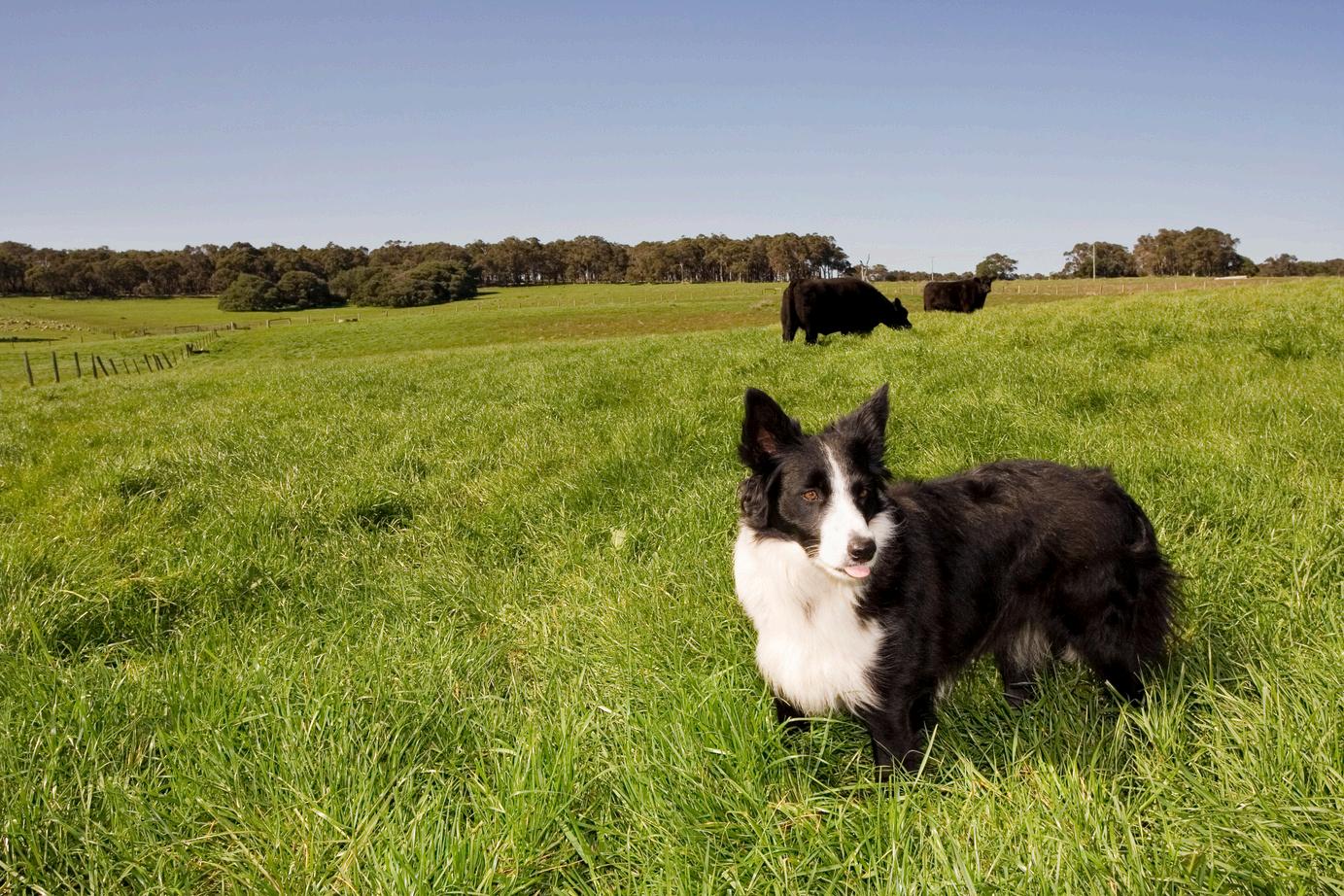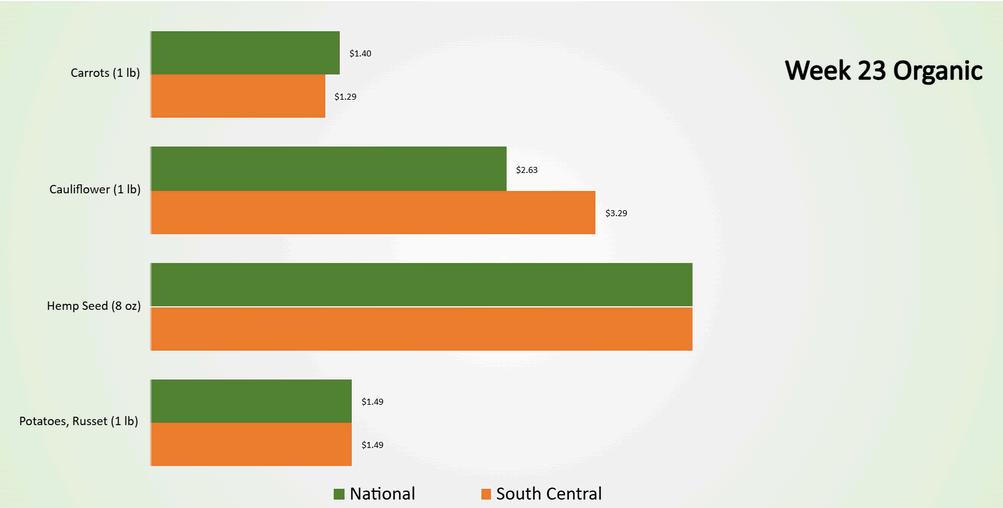

Missouri Weekly Agricultural Market Prices and Trends

AGRICULTURAL MARKET PRICES BULLETIN
Edited by Dr Eleazar Gonzalez
This weekly bulletin aims to provide market prices and trends of the main Missouri agricultural products. It helps Missouri stakeholders, including farmers, ranchers, and consumers, make informed decisions when marketing and finding prices for farm products Agricultural products include two categories: Animal-origin products and plant-origin products Prices indicate the average weekly value of each product The bulletin offers prices for selected crops and livestock products. When data is available, the publication reports beef-livestock market prices paid at live auctions in five regions of Missouri (Southwest, Northeast, Central Region, Southeast, and Northwest). In addition, other livestock market prices, such as sheep, goats, pork, whole milk, and eggs, are also reported. All information and discussion in this bulletin are the responsibility of the authors. If you want more information on the previous publication, follow us on Facebook or visit our Agricultural Economics and Marketing program website.
As an equal
employer and provider, Lincoln University does not discriminate
disability,

SPECIALTY CROPS MARKETS
The bulletin shows market prices of selected crops that consumers demand all year round The publication compares weekly trends of specialty crop prices of conventional and organic production systems. Consistently, products from organic production systems offer a higher value market when compared with conventionally grown products; however, product price volatility observes different product trends in both production systems. Market price reports vary weekly; some of our source reports might be inconsistent with weekly product prices. If a product has no price, our source didn't report a price that week. Red numbers imply that prices dropped from the previous week, while green numbers indicate a positive trend change compared with last week's prices.
Table 1. Conventional Specialty Crops Prices

Source: Agricultural Economics and Marketing Program Cooperative Extension Lincoln University with data from USDA- Agriculture Marketing Service https://www ams usda gov/Specialty Crops Market News Divisionhttps://www ams usda gov/mnreports/fvwretail pd South-Central States:Arkansas, Colorado, Kansas, Louisiana, Missouri, New Mexico, Oklahoma, and Texas
Figure 1. Market prices

Source: Agricultural Economics and Marketing Program Cooperative Extension Lincoln University with data from USDA- Agriculture Marketing Service https://www ams usda gov/Specialty Crops Market News Divisionhttps://www ams usda gov/mnreports/fvwretail pd South-Central States:Arkansas, Colorado, Kansas, Louisiana, Missouri, New Mexico, Oklahoma, and Texas
Table 2. Organic Specialty Crops Prices

Source: Agricultural Economics and Marketing Program, Cooperative Extension, Lincoln University with data from USDA- Agriculture Marketing Service https://www ams usda gov/Specialty Crops Market News Divisionhttps://www ams usda gov/mnreports/fvwretail pd South-Central States:Arkansas, Colorado, Kansas, Louisiana, Missouri, New Mexico, Oklahoma, and Texas

Source: Agricultural Economics and Marketing Program Cooperative Extension Lincoln University with data from USDA- Agriculture Marketing Service https://www ams usda gov/Specialty Crops Market News Divisionhttps://www ams usda gov/mnreports/fvwretail pd
Figure 3. Comparative Market Prices of Selected Conventional
and Organic Products

Source: Agricultural Economics and Marketing Program Cooperative Extension Lincoln University with data from USDA- Agriculture Marketing Service https://www ams usda gov/Specialty Crops Market News Divisionhttps://www ams usda gov/mnreports/fvwretail pd
MISSOURI LIVESTOCK MARKETS
Market prices for livestock in Missouri are reported from the National Beef Wire database and USDA sources. Beef prices at live auctions report medium and large weight classes. Steers and heifers with 599 pounds or less are medium-weight classes, and steers and heifers with 600 pounds or more are large-weight classes.
Beef Prices in the Southwest Region
Table 3. Four State Stockyards

4.

Table 5.

Table
Gainesville Livestock Auction
Joplin Regional Stockyards




Table 8. Springfield Livestock Marketing Center
Table 7. Ozarks Livestock Marketing Center
Table 9. Wright County Livestock LLC
Table 10. Edina Livestock



Source: Agricultural Economics and Marketing-Lincoln University Cooperative Extension with data from the National Beef Wire reports
Table 12. Boonville Livestock Center

Table 13. Callaway Livestock Center

Table 14. Interstate Regional Stockyards

Table 15. South Central Regional Stockyards

Beef Prices in the Southeast Region
Table 16. Farmington Regional Stockyards

Table 17. Semo Livestock Sales

Table 14. Small Ruminants Market Prices

Source: Agricultural Economics and Marketing Program with data from USDA- Missouri Weekly Sheep/Goat Auction Summary AMS Livestock Poultry & Grain Market News Missouri Dept of Ag Mrkt News
Source: Agricultural Economics and Marketing-Lincoln University Cooperative Extension with data from the National Beef Wire reports
Table 15. Boxed Livestock Market Prices

Source: Agricultural Economics and Marketing Program with data from USDA- National Daily Boxed Beef Cutout And Boxed Beef CutsNegotiated Sales - Morning
Farming Events and News
Lincoln University Upcoming events!
Lincoln University offers a diverse range of activities to support stakeholders with their everyday life initiatives. Connect to LU upcoming events today
World Agricultural Supply and Demand Estimates.
The report is released monthly, and provides annual forecasts for supply and use of U S and world wheat, rice, coarse grains, oilseeds, and cotton The report also covers U S supply and use of sugar, meat, poultry eggs and milk, as well as Mexico’s supply and use of sugar. link.
Full Committee Markup of Fiscal Year 2026 Agriculture, Rural Development, Food and Drug Administration, and Related Agencies Bill. June 11, 2026
A bill was presented to fund agencies programs, the bill was 25 5 billons dollars It was 1 1 billion dollars decrease from the previous bill of 2025 The reduction obey to the purpose of reduce the general economic deficit in the country According to the speaker, this bill closes the loop hemp hole from the 2018 farm bill, which resulted in the massive production and proliferation of hemp cannabinoids products sold at different outlets under the statement of USDA approved It is very important for the reemerging of industrial hemp In general was a consensus that the bill will bring negative economic externalities to local food system and communities See the video here
Farming Resources
National Resource Guide for Producers last update is May 27, 2025.
The national resource guide for producers team is making an effort to sort informational resources that help farmers respond to the rapidly changing funding and support in the agricultural industry for all sizes and scales of production Note: “The American Farmland Trust will endeavor to update this list once a week; external links are maintained by their respective owners ”
Missouri Agribusiness Revolving Loan fund
The fund offers financing to Qualifying Missouri Agribusinesses, such as value-added agriculture enterprises, agriculture support businesses, marketers or retailers of agricultural products, and businesses with emerging agricultural technology This funding is provided, in part, by the USDA Rural Development’s Intermediary Relending Program Check eligibility here
United States Department of Agriculture (USDA)
This link provides multiple options for accessing resources for your farm The USDA offers farm loans and conservation management programs to sustain your farming operations
USDA Announces June 2025 Lending Rates for Agricultural Producers
USDA Farm Service Agency (FSA) loans provide important access to capital to help agricultural producers start or expand their farming operation, purchase equipment and storage structures or meet cash flow needs Find out the new rates here
Managing risk in the farm update. This link will connect you with the USDA market-based risk management tools that aims to strengthen the economic stability of agricultural producers and rural communities









For more information, contact: Dr. Eleazar Gonzalez State Extension Specialist
Agricultural Economics and Marketing-Small Sustainable Farms Telephone. 573-681-5541 GonzalezE@lincolnu.edu
Collaborators: Maria Villamil
Agricultural Markets and Marketing Assistant
Agricultural Economics and Marketing Lincoln University Cooperative Extension
This bulletin was initially created with funds sponsored by BFRDP and NCR-SARE projects. Then sustained with State Match-Agricultural Natural Resources-Small Farms



